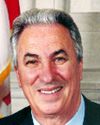Madam Speaker, for years the funding of political parties by corporations, which would ask for control and favours from the government in exchange, has been the Achilles heel of western governments.
But contrary to Greek heroes, these democracies do not die—at least none has died yet—from the low blows to this weak point in their bodies. Each time, however, they are damaged and their image is severely tarnished, which could eventually throw them out of balance.
We recall the series of scandals that shook France five years ago, when the public was at first astounded and then indignant upon learning how just about every national party was bending the law and accepting money from powerful corporations. The French government hastened to pass an act of indemnity to calm people down and save top political figures from legal proceedings.
In recent weeks, France's top political figures have yielded their place in the pillory of public opinion to the once-respected, once-adulated Chancellor of Germany, Helmut Kohl, the father of a unified Germany, he whose party funding over a number of years now appears to be just the tip of an iceberg on the rough seas of German democracy, below whose waters lurks a huge mass of dangerous liaisons between politics and business.
This lax attitude in the western world's legislation on party funding, and worse yet the indulgence with which infractions are tolerated are, in my opinion, what lies behind the dangerous disrepute into which elected representatives today, in Canada as elsewhere, have fallen. The end result of massive financing of parties by lobbies is, of necessity—you scratch my back and I'll scratch yours—nice little subsidies to generous donors, political favours, patronage, hush money, all of which quite properly scandalize public opinion.
The most recent—and most juicy—illustration of this is the discredit currently being focussed on the Minister of Human Resources Development. Do you realize this, fellow citizens? We have just taken money from your pockets that will go to pay back—with heavy interest—the money lobbies have paid to the party that governs us, so that it may continue to reign over our province, when two-thirds of the population have rejected it.
These dirty dealings are possible because of our electoral legislation. In Canada, no one has to even put any effort into getting around it. The Elections Act sets a limit on election expenditures, but there is no such limit on what amount of election funding can come from business.
When the government announced that it was going to freshen up this legislation, when Bill C-2 came up on the floor of the House, we were perhaps incurably naive to imagine that the Liberals had decided to finally tackle a thorough cleaning of the Augean stables of party financing. It meant really not knowing these people and having underestimated the man leading them, the incarnation of vote winning gimmickry and political scheming.
However, our Prime Minister did not have to look far for a model in this area. The Quebec elections act prohibits corporate donations. In shutting off this tap, it put a stop to the disgusting stench that rose from the trough of political favours because of the conniving about contracts and grants.
Do you see in Quebec this sort of endless scandal, which, in Ottawa, delights the columnists, but little by little, dangerously, adds to the up to now silent—regrettably—disdain of the public for its representatives?
The Bloc Quebecois has therefore moved an amendment to limit election funding of the parties to voters and to a maximum of $5,000 per contributor. This is the third time we have tried to change the law in this regard. On the first two occasions, the Liberals rejected our amendments.
If it is accepted this time—we can always dream and God willing—if such a miracle were to happen, it would put an end to the resolution we voted on at our convention to enable our party, so that it could fight as an equal, to accept corporate donations—with a $5,000 limit—as our adversaries can.
In conclusion, if our amendment is rejected, Parliament Hill will remain the centre for the distribution of the billions of dollars this government has acquired improperly by rationing the provinces, overtaxing the middle class and the ransoming of two pension funds, by the barons of the system to their buddies, who, never disappointed in their expectation of the favour being returned, will finance their return to power.
But as it is an ill wind that blows no good, we may hope that the bill will help finally convince Quebecers that sovereignty is the only route of escape from the cesspool the federal system has become.
A few more bills like Bill C-2, a few more HRDC scandals and those of us who hoped that Canadian federalism might yet rectify itself, will in the end recognize and understand that there is no hope for a rotten apple. We pitch them.















